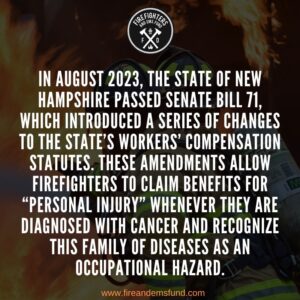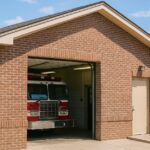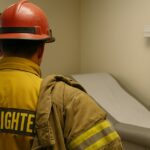The heroism of firefighters is deeply ingrained in the public’s collective consciousness. Films and newsreels show brave individuals rushing into burning structures and putting themselves in harm’s way for the greater good. In such acute emergencies, firefighters can typically count on swift medical assistance, should anything happen to them.
But the hazards they face are not limited to smoke inhalation or falling and being trapped inside structures. The combination of heat and their own protective gear creates an extra set of dangers that can seep into a firefighter’s body. The result? Firefighters face drastically higher cancer rates than the general public – but this is hard to prove in court or to an insurance provider.
Enter presumptive coverage laws – a potential remedy to this long standing injustice. But what does the law say in the State of New Hampshire? And what are our lawmakers doing about it?
Why “Presumptive Coverage” Matters
Proving the link between occupational exposure and cancer is often a costly and time-consuming legal battle – and yet, cancer is an expensive and time-sensitive disease. For newly diagnosed firefighters, even a couple of months’ delay in receiving workers’ compensation for their condition can significantly alter their outlook and survival rates.

“Presumptive coverage” laws shift the burden of proof away from the patient. Instead of having to prove their cancer was caused by being exposed to carcinogens on the job, these laws assume that certain cancers are. This assumption forces insurance providers to either disprove the connection or provide benefits in a simplified way, easing the financial and emotional strain on firefighters and their families.
The Law in New Hampshire, as it Stands Today
In August 2023, the state of New Hampshire passed Senate Bill 71, which introduced a series of changes to the State’s Workers’ Compensation statutes. These amendments allow firefighters to claim benefits for “personal injury” whenever they are diagnosed with cancer and recognize this family of diseases as an occupational hazard.
In addition, the new version of the law no longer requires the specific type of cancer to be recognized as one caused “by exposure to heat, radiation, or a known carcinogen, as defined by the International Agency for Research on Cancer.”
The law covers both professional and volunteer firefighters who have been in service for over 10 years, as well as emergency medical personnel, ambulance workers, and rescue personnel. However, it does include two important caveats:
- The worker in question must have been “free of such disease” at the beginning of their employment (for example, by submitting to a medical examination upon hire)
- The firefighter must guarantee that he or she is living a “tobacco-free lifestyle” upon diagnosis.
The bill was sponsored by a bipartisan team: Sharon Carson, a Republican, acted as the primary sponsor, and was supported by two Democrat lawmakers: Donna Soucy and Cindy Rosenwald. It was signed into law by Governor Chris Sununu on the 4th of August, 2023.
What does This Mean for Firefighters in NH?
This piece of legislation will radically expand coverage for any firefighters who have been diagnosed with cancer ever since. Before this amendment, firefighters needed to prove their specific cancer type was recognized as “caused by carcinogens”. This posed two difficulties:
- The list provided by the International Agency for Research on Cancer was very limited and didn’t include many cancer types that could also be influenced by genetics or other factors, even if only partially.
- To properly determine a cancer’s subtype, patients often need to have surgery first, and then send a sample of their cancer for expensive genetic testing.
Instead, firefighters will be able to count on their benefits right away, and their families won’t be left struggling or ready for a legal fight.
It looks like the New Hampshire legal system is vested in providing justice for its first responders. But is it doing everything it should? Are there more legal voids that could be paved?








